Reputation Management: Marking down dealership markups
Welcome to Reputation Management! In this new series, we’ll explain the oft-mystifying behavior of your local automotive industry—places like car dealers and service shops.
First, we’ll dig into publicly available customer reviews for those businesses. Then we’ll remove the names and discuss the situation from multiple viewpoints, leaning on my years of experience as a—you guessed it—reputation manager.
If we do this right, you should walk away a better, smarter consumer. Let us know what you think in the comments! —Sajeev
***
We all know the cross-shopping drill when it comes to buying a new car. (If you don’t know, read about these eight steps.) The path of a vehicle from assembly line to suburban driveway is complicated, because most Original Equipment Manufacturers (OEMs) have mid-level distributors (i.e. car dealers) sprinkled across the country. While consumers are generally loathe to appreciate this arrangement, it benefits both OEM and dealer for reasons you might not have considered:
- Save face: Difficult warranty/repair/workmanship issues can be blamed on the dealership rather than the OEM (which happened regularly during the Takata airbag-recall fiasco).
- Move metal: Did the OEM make too many undesirable sedans to fulfill a contractual agreement with labor? No biggie—just cram them down the throats of the dealers. They will make people buy the four-doors over CUVs.
- Get cash now: OEMs have their own JG Wentworth, as cars that roll off their assembly lines are often pre-sold to dealers so they can “get cash now.”
- Be compliant: OEMs must make CAFE-friendly, fuel-efficient cars in our great nation. But such vehicles are generally undesirable, especially when gas prices are low. Who will buy them? It’s not like the OEM expects you to buy three Chevy Aveos in order to get that Tahoe LTZ your family wants; that’s what they expect from the dealerships.
Keep these issues in mind when you (rightfully) hate on car dealers, especially when their actions equate to outright greed. The case at hand is of a dealership and its $90,000 worth of additional dealer markup (ADM) on a new Corvette Z06.

It all started last August, when a customer posted the above on his public Facebook page (click here to read the unredacted version) about the $90,000 ADM. No surprise, the automotive internet was set ablaze. Big-name automotive news websites openly slammed the dealership.
The issue was resolved the next day. A dealership employee apologized and promised to sell all Z06s at sticker price. Apparently, the ADM the dealer was looking for wasn’t worth the impact on its online reputation.
But look a little deeper …

In 2023, that apologetic employee posted this note of recognition from Chevrolet on his personal, public Facebook page. The note suggests a dealership need not apply ADMs to make a profit or to win an award for performance. Posting that OEM recognition publicly is the textbook definition of “bad optics.”
But nobody noticed the blunder, as the next Internet firestorm ensured this Facebook page was safe from harm. Let’s get back to the $90,000 ADM, which certainly, unequivocally ensures the next buyer can’t flip the car for profit. Becoming upside-down is a valid concern for the first buyers, especially because, in this case, the customer’s Facebook account included multiple postings for desirable vehicles. Those vehicles wore booster plates from another dealership, suggesting the Z06 buyer also worked in the car business (though their connection may be tangential). Those postings bring about questions:
- Would this customer flip that Z06 to someone in his network for tens of thousands in pure profit?
- Did they earn that right to flip the car? How many slower-selling Chevy Bolts did this customer buy over the years to earn a Z06 allocation?

Hate them all you want; ADMs exist to reward the dealers who have stuck with the manufacturer through trying times. Loyalty doesn’t come for free. I shudder to think how many CAFE-compliant cars this particular dealership has taken off Chevy’s books in the past 50 years.
Of course, there’s that whole free-market economy angle, to which some of us are fiercely loyal. But at some price point, an ADM becomes a slap in the face of a majority of customers, hence why this particular dealership still reaps what it sowed.
Facebook, where art thou?
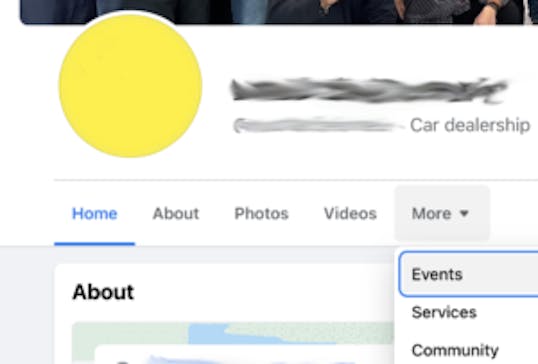
The dealership’s digital media team still doesn’t have the will to reinstate customer reviews on its Facebook page. (I am sure last August was a hot mess, so staffers shut down reviews/comments for the sake of their sanity.) But while Facebook reviews can be toggled on/off with the click of a button, there’s no such luxury for reviews on Google and Yelp.
That said, I’m sure both platforms instituted social activism protocols, because almost all traces of the $90,000 debacle are no longer present. But we got lucky, as it were: Some reviews remain published on Google. Let’s have a look.
Social activism unleashed!

The lack of any unique information or timing in this review is suspect; any Internet warrior who reads a car blog coulda written this. The odds are low that its author has any interest in buying a vehicle, but one can click on their name to see their other reviews if so inclined. In theory, this review could be flagged by the Reputation Manager; Google woulda removed it nine months ago.

The same thing applies here. On the plus side, the dealership has a 4.5-star rating on Google with almost 4000 reviews, so the remaining bad reviews have not made a big impact on local Googlers who have no interest in a Z06 and are just looking for a Chevrolet dealership in their area to sell them a more mundane vehicle.
But that’s a good point…

This review reminds us of the dichotomy between a Chevrolet dealership and the intended buyer of a mid-engine Corvette. Tens of thousands of ADM are possible on lower-volume brands like Ferrari and Lamborghini. While Ferrari skirts the issue by having a global list of preferred customers, would anyone tank the ratings of their dealers for wanting 90 grand over an SF90 Stradale?
This review only supports the argument that Corvettes should be sold in a more premium dealership environment.
A silver lining elsewhere?
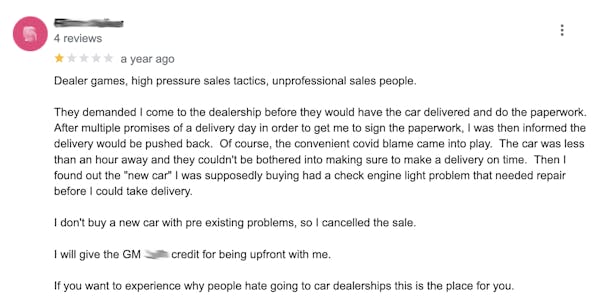
Let’s be clear on one thing: I come not to bury this dealership. I only wish to let a story unfold from multiple vantage points, as the actions of car dealerships are rarely as one-sided as many suggest.
This reviewer catches my drift: He gives the store’s general manager a dash of praise for “being upfront” with him. When a deal like this (presumably not a Z06) has been so badly torched, that one sentence is a wonderful tribute to an employee looking to make things right. Which begs the question, is it possible to mark up a Z06 in a good way?
Altruism: The Ultimate ADM

What if a dealership can make a ton of money for a charity in lieu of exorbitant profits?
That’s precisely what happened at a competing Chevrolet dealer when they put one of their Z06s up for auction and generated $71,000 for multiple local charities. That’s still a lot of markup over sticker price, but the “entire $71,000 will be donated.” The end result is a vehicle that won’t be “lost” to a flipper and, even better, earns something tangible for the dealership.
The public is generally kind to a dealership throwing cash to beneficial use. Goodwill marketing is valuable, so why not donate to a worthy cause? Doing so nets sales referrals from locals interested in the rest of your dealership’s lineup. The more metal you move, the happier a manufacturer is.
I’ve seen the charitable angle work many times, and I firmly believe that’s how a dealer plays the long game. In fact, let me coin a phrase here: altruistic ADM.
Marketing isn’t cheap, but pissing it away on even more obnoxious TV, radio, or ![]() siren emoji ALL CAPS screaming Facebook ads
siren emoji ALL CAPS screaming Facebook ads![]() isn’t necessarily a great use of the cash generated by ADM. Dealerships chase good money after bad on a regular basis, so altruistic ADM can instead be a better move.
isn’t necessarily a great use of the cash generated by ADM. Dealerships chase good money after bad on a regular basis, so altruistic ADM can instead be a better move.
While this wasn’t directly connected to ADM profits, I was proud to play a (very small) part in the video above. (I can only hope my former employer is keeping this program in effect.) Dealerships using their resources to help the local communities that support them is beyond worthwhile. In this case, the dealership is working with a local school district to honor a “Teacher of the Month” with a new car for that time period. Once the month is over, however, the teacher must return the vehicle, because no dealership could stomach the cost of giving away new vehicles on a monthly basis … no matter how worthy their recipients may be.
Pulling a car out of the fleet and throwing the keys to a new teacher every month isn’t free, but the gesture is worth more to that teacher and her circle of influence than any TV or Facebook advertising campaign the dealer could use to target them. Perform enough altruistic ADM, and the circles of influence start overlapping in ways that few but Elon Musk understand.
Most dealerships have not realized the benefits of this strategy, however, and the decades of shady dealings never go away. If the world was a different place, perhaps that electrified automotive brand with no dealer network coulda had a harder time penetrating its market. That’s precisely where we are going in our next installment of Reputation Management.
***
Marketplace
Buy and sell classics with confidence
What did you think of Reputation Management? Was this a good use of your valuable time? Would you like to see more—and if so, anything you’d change or add?
We’re always open to suggestions from the Hagerty Community, and if there’s a type of business you want to discuss, odds are we can find it online. Tell us what you think in the comments!


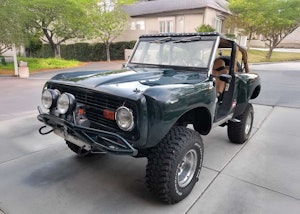
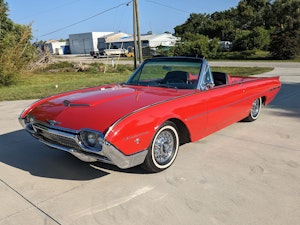
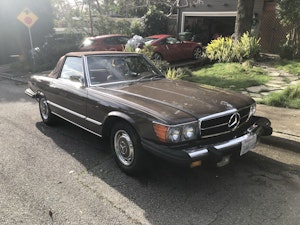

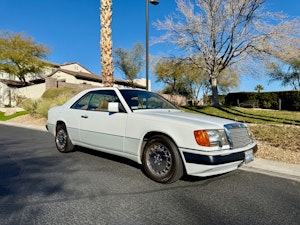
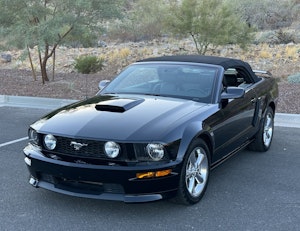
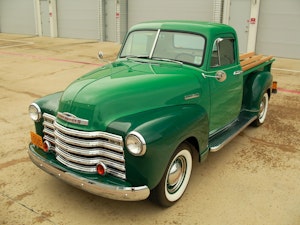













2 interesting statements in the more recent comments…
“we’d all be driving austere cookie cutters”
Certainly most CUV and SUV of the last 30 years are pretty much cookie-cutter. Even really pricey stuff isn’t immune to that… look at that newer BMW that looks like a 2012 Mustang.
I like austere. Can’t get it in anything that isn’t a tiny car. In a Tacoma (well a few generations ago) size truck –that would be useful. Sometimes you can “build and price” one, but they don’t actually exist.
—————–
“The only reason dealer exist is bad legislation… no need for middlemen…”
This makes me think a few things:
-what products do we actually buy direct? (Walmart and Amazon are both middlemen)
-for years media has been reporting that “GM has too many dealerships” so I get there is some sort of baked-in legal stuff around franchise protection…
-however, where I am front multi-brand dealer groups are taking over. We are in the early stage where a group will form up with branches in 2 hours away places but service gaps in between. So maybe the dealership as we know it will turn into the generic big box multibrand outlets (like we have for electronics) with the odd boutique store (apple store) for prestige/lifestyle brands where they make sense to have that.
-the legislation to provide parts (10 years iirc) can easily be serviced through networks like NAPA has
-right to repair is the correct path, and local mechanics can do warranty work
but those last two spots are where the current dealership model makes money. Where I live we have not seen the return of high inventory levels and discounts. Toyota in particular is running minimal on-hand inventory sell at full price, you have to order it in and wait. A friend works at one, says he could sell 10 cars a week if they would let him have stock.
So yes, there are problems with dealership models. I don’t think this is done evolving and it will look very different 10 years from now even if legislation isn’t changed to “guide” it.
MSRP; this, in my opinion is 50% over the cost of what the OEM paid to manufacture the vehicle, am I correct? If that is true, when dealers sell the vehicle and add all of their fees including delivery charges, the buyer is truly screwed. I’ve always been taught that when you drive the vehicle off the dealers lot it automatically losses 10K of what you just paid for it (probably more now adjusted for inflation).